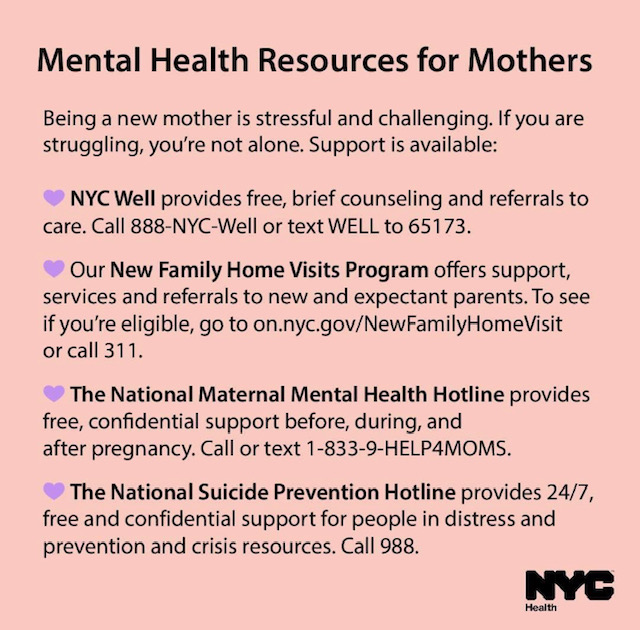
Photo courtesy of Dr. Brenda Boatswain
May marks Mental Health Awareness Month, a time to share information and resources about good mental health. Mental Health America has chosen as its 2023 theme for the month “Look around, Look within.”
Dr. Brenda Boatswain is the wellbeing manager at Montefiore Einstein and assistant professor in the Department of Family and Social Medicine at Albert Einstein College of Medicine. Here, she answers questions from the community about mental health.
What can people do to prevent mental illness?
When we talk about prevention of mental illness, we should discuss things that can be done, even before a person is born. There are many things individuals and families can do to support good mental health. For example, a pregnant woman can give her baby the best start by not using alcohol, tobacco products, and drugs not prescribed by a doctor.
Taking care of her own mental and physical health will also give her baby the best chance for a healthy brain. In a child’s first years of life, their brain and body develop a lot and need healthy food, clean water, safe housing, safety from all forms of violence, adequate sleep, physical exercise, supportive parenting, spiritual care, and regular check-ups with a medical provider.
Prevention of mental illness also includes addressing a known risk factor of mental illness: exposure to abuse, neglect, and traumatic situations. Promoting the mental well-being of children, youth, and adults leads to better outcomes in their health, school, work, behavior, relationships, and life expectancy.
Are there signs of mental illness?
The signs of mental illness may vary based on individual differences such as age, gender, and culture. In general, speak with your medical provider if you or a loved one experiences these things: high and low extremes of emotion, big changes in sleeping and eating habits, isolation from friends and family, lots of worries or fears, seeing or hearing things that other people can’t, drug or alcohol abuse, harming oneself or doing risky things, and thinking about and talking about suicide.

Flier courtesy of NYC Department of Health & Mental Hygiene
What kinds of treatments are used to help someone with mental illness?
Talking with a licensed counselor (talk therapy) is helpful for both the individual with mental illness and their family members. A licensed counselor can suggest ways to cope and better understand mental illness. Parents can speak with a licensed counselor or join a parents’ group for skills on parenting someone with mental illness and caring for themselves.
Some people may need a combination of talk therapy and prescribed medication to feel better. Self-care is very helpful; work on reducing stress, sleeping well, eating nutritious foods, getting exercise, avoiding alcohol and drugs, doing activities you enjoy, and spending time with people who support you or in supportive environments.
I hope this encourages people to look around and look within and create communities of care and support to talk about mental health.
To request a workshop on mental health in your community, contact Carlos Tejeda at ctejeda@montefiore.org. To learn more about mental health services at Montefiore, call (718) 430-2290 or visit https://www.montefiore.org/psychiatry-services.
Carlos Tejeda is the community health specialist in the Office of Community and Population Health at Montefiore Health System.




